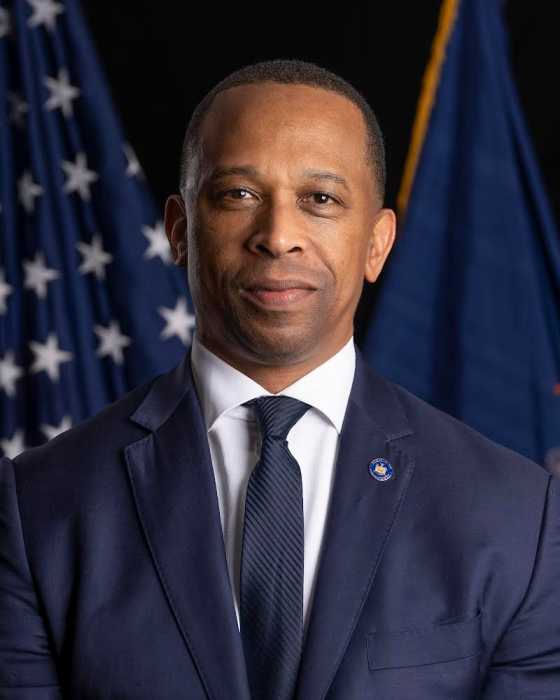Part II of My Top 10 List of Most Successful Presidencies
Last week, I began my list of the most successful presidencies with number 10 through 7, this week I conclude the article starting with number 6:
6. Harry S. Truman: You want to talk about decisive. When convinced that dropping the Atomic bombs would save American lives he acted immediately. “I ordered the bomb dropped, went to bed and slept like a baby” he would muse in later years. When asked about his moniker “Give ‘em Hell Harry” Truman replied, “I never give them hell — I just tell the truth and they think it’s hell.” Ask Soviet Minister Molotov, who instead of getting a hello on paying his first courtesy call to the new president, got chewed out for the Soviets’ failure to uphold free elections in Eastern Europe. An appalled Molotov protested, “I’ve never been talked to like that in my life,” “Keep your agreements and I won’t talk to you like that” Truman angrily shot back. Vice president for a few short weeks before Roosevelt’s untimely death, Truman only met with the president twice. Perhaps no one with so little experience had to confront such international problems on so vast a scale, yet Truman was successful in concluding the war with Germany, defeating Japan, rebuilding Europe and facing down Soviet Communism. He did all of this while also recognizing Israel as a nation against the advice of his entire cabinet. He signed the GI bill, which helped foster the post-war economic boom and for someone from racist Missouri his commitment to civil rights was truly impressive. Less impressive was his Fair Deal that called for an enormous increase in social spending that was wisely thwarted by a Republican Congress and helped keep steam in a growing economy. He showed grit again in defending South Korea when attacked by the Communist North backed by Communist China. He rightly fired the very popular General Douglas MacArthur for challenging civilian rule but could not break the military stalemate in Korea that was so politically costly. Despite this, we leave the final say to Churchill who, when he first met the man from Missouri, was studiously unimpressed but after the Truman Doctrine, the Marshall Plan and the NATO Alliance he would ultimately admit to Truman that he, more than anyone, saved Western Civilization. It’s hard to disagree with that.
5. Ronald Reagan: Entering office with raging inflation and sky-high interest rates that paralyzed the economy, Reagan, an advocate of supply side economics, enacted the largest tax cut in American history and soon people were talking about the Reagan Revolution, which ultimately precipitated the longest growth spurt the U.S. has ever known. When Reagan left office unemployment was at 5 percent and inflation a point lower, a striking accomplishment since it was now believed that a modern democracy was unable to control inflation. Critics would carp that deficits soared — yes, but compared to what? As a percentage of the GNP, which had grown almost exponentially under Reagan, the deficits were actually smaller. Of course Reagan wanted to cut spending but throughout his entire tenure the Democrats controlled the House (who control the purse strings) and had regained the Senate in 1986. This was Reagan’s greatest regret but he was a realist and sought to accomplish what was politically possible. What he would not cut was military spending which became the backbone of “his peace through strength.” He pushed intermediate missiles in Europe against enormous international political pressure, a missile defense shield to actually defend people rather than relying on “Mutual Assured Destruction” as a means of deterrence and took on left wing elements in Central America. Despite being an outspoken cold warrior, it was under Reagan where nuclear warheads were destroyed as opposed to just being limited. We now know that it was Reagan’s policies that hastened the end of the Cold War and the demise of the Soviet Empire. Americans believed in Reagan. His serene optimism restored a sense of confidence and pride in Americans; patriotism flowered and it always seemed that with Reagan it was “morning in America.” He possessed wonderful communication skills not because his language was so elegant but because his beliefs, whether you agreed with him or not, were so sincere. Only the Iran-Contra affair, late in his presidency, when he became too detached from his subordinates, hurt his standing.
4. Theodore Roosevelt: The historian Henry Adams said, “Roosevelt, more than any man living, showed the singular primitive quality that belongs to ultimate matter — the quality that medieval theology ascribed to God — he was pure act.” A believer in capitalism, he was the first to regulate the industrial Goliaths that began to dominate the U.S. economy. While busting monopolies and trusts, Roosevelt was also the first president to spearhead labor friendly statutes including child labor laws and workman compensation bills that covered all federal employees. Then again, he would use troops to break up strikes, which he thought endangered the national interest. Yet, Roosevelt did not hesitate to regulate the nation’s food supply after Upton Sinclair published The Jungle about the appalling conditions in Chicago’s meatpacking plants. It’s a narrative of exercising presidential power wherever it did the most good. This philosophy made Roosevelt the nation’s first environmentalist who, in a far-sighted move, withdrew from development 150-million acres of forest land, established 50 game preserves and doubled the number of national parks all for the use of future generations. Perhaps no president had so many successes in foreign policy. Henry Kissinger believed that Roosevelt had a greater grasp of foreign affairs than any president before or since. An unabashed expansionist, he was committed to a two-ocean navy by building the Panama Canal (a power-grabbing illegality) but by making America a major Pacific power he checked Japanese and Russian aggression that promoted global peace. He deftly dealt with the Venezuelan and Dominican debt crisis going so far as to take control of the Dominican treasury. He secured Britain’s support in settling the Alaskan boundary with Canada. He was the first president to win the Nobel Peace Prize for essentially arbitrating the war between Japan and Russia in addition to taming Japanese aggression toward China. A man of explosive and inexhaustible energy, it is not surprising, said one of his many admirers, Death had to find him asleep or the grim reaper may well have been the victim of a bloodied but unbowed TR.
3. Franklin Delano Roosevelt: Has there ever been a political leader that blended so perfectly the qualities of charm and cunning as much as FDR? I honestly can’t think of anyone. There are others I would have voted instead for president that I rated below him but this is a list based on achievements not ideology. And those achievements are sweeping and unique. No other president had to face a crisis as severe as the Great Depression on the domestic front and as great as WWII on the international front. He defeated both enemies with a self-confidence and aplomb in his podium-pitched perfect oratory that can invoke in observers a bit of wonder and awe. “He was the one person I ever knew, anywhere, who was never afraid” said one of his successors, Lyndon Johnson. Out of this deep-seated assurance was born the ringing phrase “The only thing we have to fear is fear itself” during the darkest days of the Great Depression. He could sell hope better than anyone and the sense of security he gave Americans changed the political landscape from the rhetoric of rugged individualism to the bathos of patrician solicitude for the common man. In essence FDR’s presidency gave license for the federal government to intervene in the economy when private efforts failed to assure the economic security of all Americans. The one thing he did above all others in what he called his “bold and persistent experimentation” was to stabilize the banks, the core of any economic recovery. In the process he created a permanent social safety net that both Democrats and Republicans came to endorse, albeit to different degrees and even if his policies did not end and even protracted the duration of the Depression he gave Americans hope and confidence that things will get better. He used the same tactics to prepare an America in the throes of political isolation and economic crisis for the terrible war that lay ahead. No one was better equipped for this role. A master politician who mastered every media venue of the time (he may have been the best politician ever) he did to the nation what he did to other political figures, casting them under the spell of his enormous and virtually irresistible personality. With guile, charm and soaring rhetoric he manipulated, persuaded, seduced and compelled a reluctant nation to a call to arms. Once that war began he shifted gears to become its supreme commander using every resource at his disposal to crush Nazi Germany and Imperial Japan. He made a few major mistakes: An overreliance on government pump priming to catapult us out of Depression, trying to pack the Supreme Court and being more afraid of British Colonialism than the malevolent designs of Joseph Stalin. None of which is enough to move him from his number 3 position on this list.
2. George Washington: Henry Lighthorse Harry Lee eulogized Washington as “first in war, first in peace and first in the hearts of his countrymen.” Few today realize how important Washington was to the young country who realized that without him both Independence and Republican government would have never happened. One of the reasons Washington was a great president is that he never made a serious mistake though the opportunities to make one were never greater. Intelligent and a fine prose stylist, he lacked the genius and the extraordinary literary flair of some of his contemporaries but none of them ever put themselves on the same pedestal. Courage, strength of character, virtue and impeccable judgment set him apart. It was said that his majestic appearance made every king and monarch in Europe look like a mere valet by comparison. According to Jefferson, as far as he saw, no one ever saw more clearly. With no road map, Washington had to flesh out his role and its relationship to the new government. He had to bind a very fragmented 13 states into one country in the midst of a world at war and without sacrificing the Republican government that had been entrusted to him. He did everything to strengthen the sinews of nationhood by physically connecting it with the building of roads, canals and post offices, sided with Northerner and capitalist Alexander Hamilton over Thomas Jefferson (though Jefferson and he were from the same agrarian Southern aristocracy) to create a National Bank economically integrating the states. Politically savvy, he presided over the formulation of its laws, tactfully resolved partisan clashes, gave up power willingly and in his Farewell Address gave the budding nation the best advice a parting president would ever deliver, one that would remain germane for more than 100 years. Yet, the presidency, monumental as it was, may not have been the most glorious part of Washington’s career. He led for seven years a tattered Continental army against the greatest military and economic power on earth, refused to become a dictator when dictators were the spoils of military victors, surrendered his sword to civilian authorities, refused monetary rewards for his service, and presided over the Constitutional Convention whose office of the Presidency was modeled after his Republican virtues and was the only Founding Father to free his slaves. Like Alexander the Great of the Ancient World he was a born leader if there ever was one. It would be almost impossible to choose a more significant American; a claim of which his presidency only adds luster to.
1. Abraham Lincoln: It is hard to be objective about Lincoln because from his humble birth to his tragic death his life remains the most poignant story in American history. In the marvelous phrase of David Herbert Donald “he has become the collective wish fulfillment of the American people.” I choose Lincoln over Washington because I think the challenges in holding the nation together were greater than in forging one. Lincoln, our 16th president, could well have been the last. While Washington faced uncertainty, internal divisions and grave foreign perils, Lincoln faced a gigantic Civil War, a nation literally at war with itself. When Lincoln was inaugurated, Washington D.C. was surrounded by hostile Confederate states proclaiming themselves a new nation. Lincoln would have none of it. Secession was illegal and if allowed, Republican government could not survive. After several missteps he shrewdly got the South to fire upon Fort Sumter in South Carolina that would result in a nation of 31 million suffering 622,000 deaths. It was a war of Americans killing Americans. Lincoln became a master of gigantic problems and somehow, in some mystical way, incarnated the sufferings of both North and South which was reflected in an uncompromisingly severe but richly compassionate prose style that defined the higher meaning of the war and will live as long as the language itself. That meaning was not only to preserve the Republic but also from nationalizing slavery in the vast West. Through speeches and public papers he accomplished this in an intellectually compelling and poetic account that restated the nation’s original principles enunciated in the Declaration of Independence. In conquering the South militarily he not only had to marshal vast armies but exerted extra-constitutional means that he argued was consistent with his sacred duty to preserve, protect and defend the Constitution. In doing so he refounded the Union by creating one nation, indivisible and in the words of the Gettysburg Address (Democracy’s Sermon on the Mount) gave America “a new birth of freedom.” There are many other things that Lincoln did to restore the Union and prepare for the future like the Homestead Act, the building of the railroads, uniting East and West as North and South were divided. His greatest legacy, however, was that the Republic endured and slavery was banished forever from the bosom that had first nursed and sung the song of liberty.

































